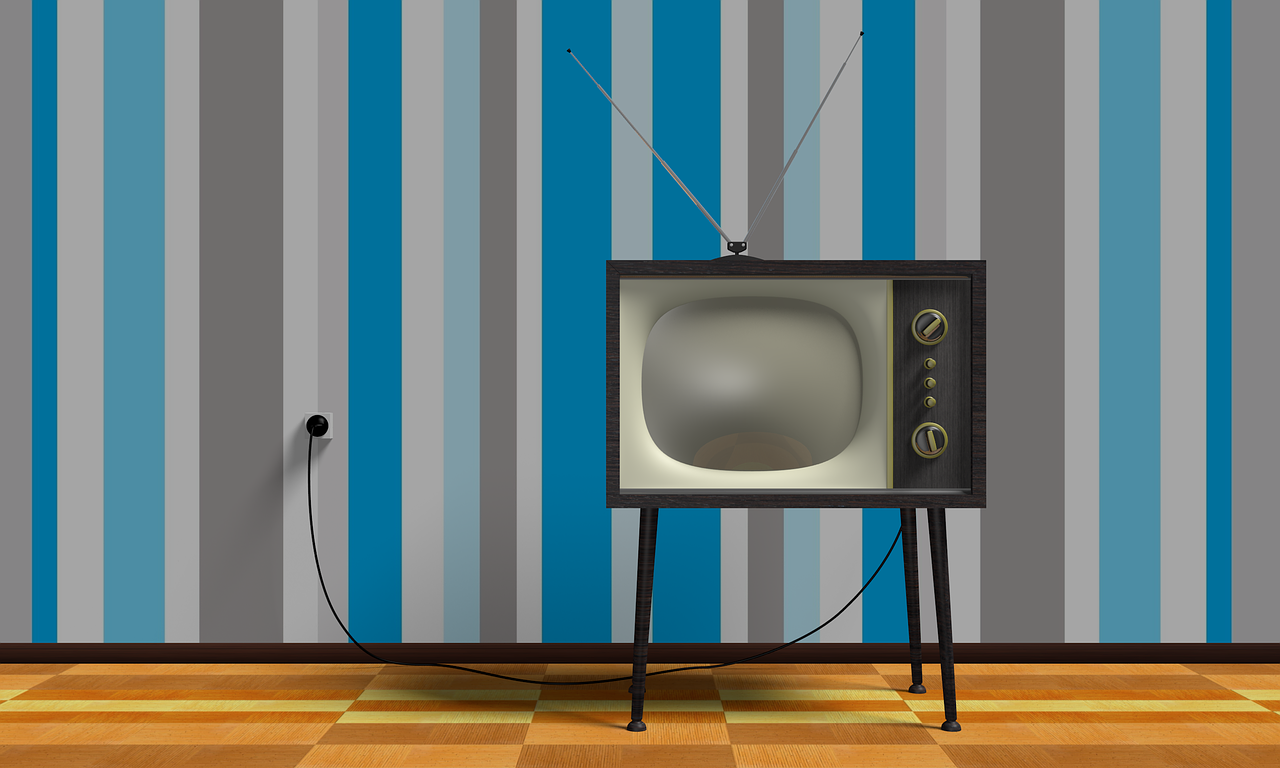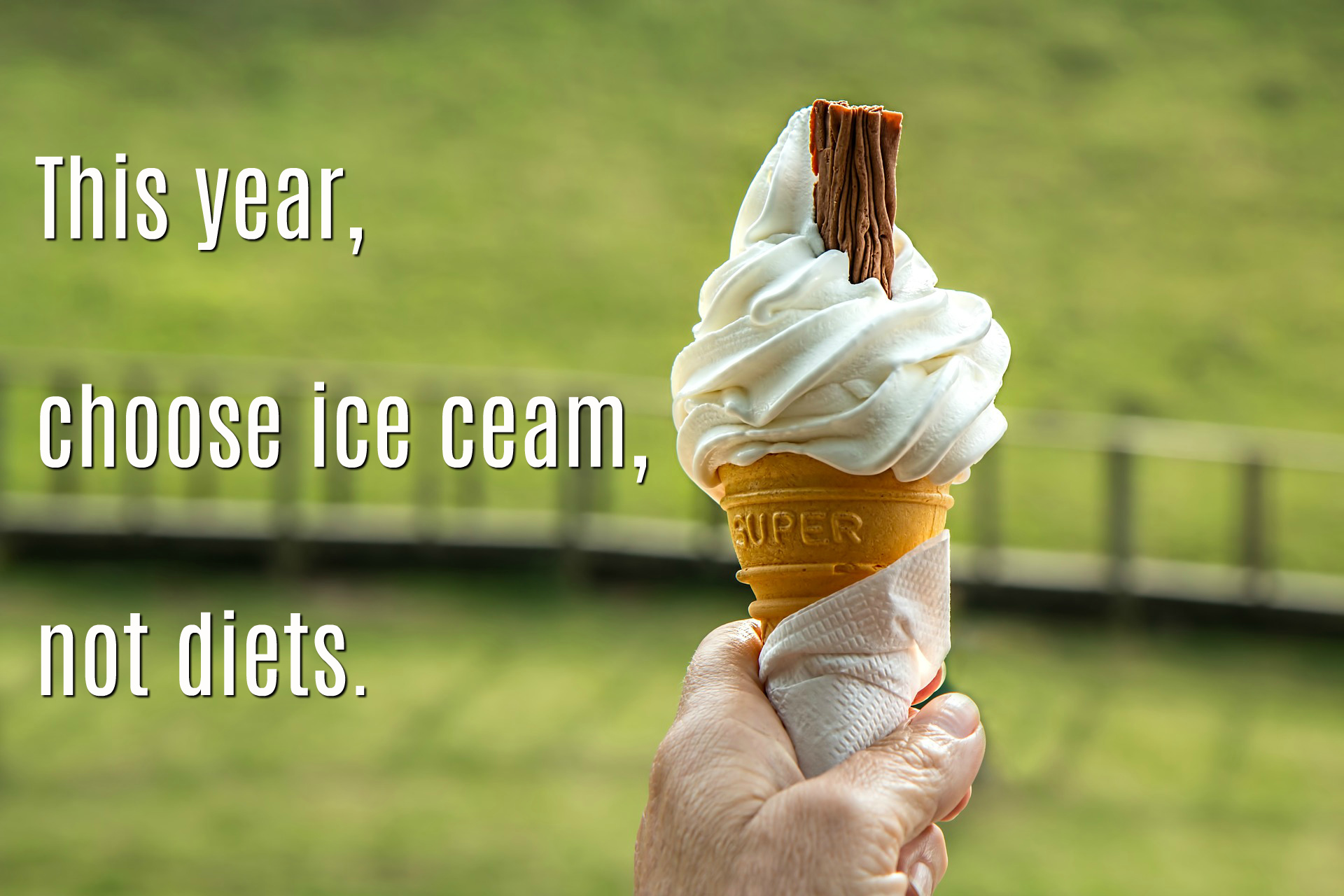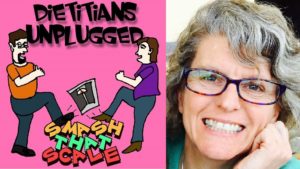Podcast

I’m a long-time TV fan but as I get older, my time is precious. I want to watch things that I find really entertaining. And with the rise of more fat representation on TV, there are more things for me to think about watching. But just because something includes a fat person doesn’t necessarily mean it will be a great show.
So in this episode, Aaron and I discussed the viewing options presented over the past year (thanks to streaming!) and offered up some criticism to help you in deciding what to watch. And it is summer after all, which, if you’re old enough, you remember as the time of summer reruns and trying to figure out what’s on that’s good (apparently this is no longer a problem, but nostalgia dies hard in my home).
In this episode, we talked about the TV show Dietland, based on the book of the same name by Sarai Walker, that aired last year on AMC and now streams on Hulu, and Shrill, which debuted this spring and runs on Hulu as well. We also mention a few shows with dubious fat representation that we have not and will not be watching (return of The Biggest Loser, Insatiable) for a variety of reasons.
Subscribe and get my free guide:
Why you overeat …and what to do about it
Click here if you just want my newsletter!
Podcast

Our bodies tell so much of the story of ourselves. In an ideal world, we’d be good friends with our bodies, appreciate them for what they allow us to experience of the world, and be in tune with what they tell us about those experiences. But because we don’t live in a perfect world, we can lose touch with the wisdom of our bodies. Or, because of past trauma, our bodies have become a scary place for us to be.
Getting back into our bodies can be a challenge, so we asked Tracy Brown, RDN, LD/N, a somatic nutrition therapist, how she helps people do just that. She talked about the effects of trauma on the body, how “feeling fat” isn’t really about body size at all, how the fight/flight/freeze reflex can keep us trapped in the diet cycle and how reconnecting with the body can help end the cycle.
And if you want to see body disconnection in action, I provided a spectacular example during this episode (you’ll probably know it when you hear it!). Last year was great professionally, but tough and also way too busy. I spent too much time working and growing, and not enough relaxing and regenerating. And I am someone that needs a fair amount of relaxation in order to function optimally for the long run. When we recorded this episode, I was experiencing the late effects of total body breakdown: exhaustion, headaches, and a real difficulty with concentration. It’s been a hard lesson in knowing my limits and learning to respect my body, but life is always a work in progress!
Care for Diabetes
Rebecca Scritchfield and I are working hard on a new, expanded offering of our weight-inclusive diabetes groups. Make sure to sign up on this page to be one of the first to find out when it launches.
Subscribe and get my free guide:
Why you overeat …and what to do about it
Click here if you just want my newsletter!
Podcast

I rarely bring up the concept of thin privilege with thin people unless the situation warrants it (like when they are tsk tsking about fat people). My goal is always to try to bring people into the fold with kindness and compassion, and I find bringing up something like thin privilege gets them on the defensive fast and shuts everything down and my seed planting goes to waste. Some might disagree with this philosophy and that’s okay.
I do talk about this quite a bit, however, with my clients in larger bodies because it provides a framework and understanding for why they experience weight stigma, and for why they long to be in thinner bodies. Who doesn’t want privilege?? We all want that.
At the same time, I strongly feel that dietitians and dietitians-to-be — thin or not –absolutely must understand this concept if they want to practice compassionate care. At some point, dietitians will treat people in fat bodies, and it is imperative that they understand how people suffer so under such an unfair system of privilege. (It’s also important to understand that we need to change the unfair system and not the body size)
So when Aaron and I gave an introductory talk on Intuitive Eating to a large group of dietetic interns, we were a little surprised at the “feedback” (more like vitriolic criticism) we got from several attendees for mentioning thin privilege (an example of the aforementioned shutting down). They felt they had been attacked personally by even the mention of thin privilege, even though no person in the room had actually been identified by us as having it — we were simply bring it up as a concept to consider when treating people in larger bodies.
Since we consider all life experiences fodder for a podcast, this was our effort to process the whole experience and talk about why acknowledging thin privilege exists is so important (I had it once and can tell you it exists). If you are in a smaller body, I hope you’ll listen to this podcast with an open heart and mind, because no matter what, all bodies are good bodies, and we always appreciate our thin allies.
Subscribe and get my free guide:
Why you overeat …and what to do about it
Click here if you just want my newsletter!
Podcast
I work with many clients who have binge eating disorder or, if not an official diagnosis, definite binge eating behaviors. All are in different stages of recovery, and many make great progress with learning to eat in an unrestricted, nourishing way that they feel good about while also ceasing binge behaviors.
My clients also come in a range of body sizes, but most typically are in larger bodies. Given our culture’s view of fat bodies, it doesn’t surprise me at all when they eventually ask, “When can I start trying to lose weight again?”
The reality is, my clients are not strangers to dieting and weight loss. They have “succeeded” at weight loss many times, always with the inevitable weight regain that we know comes with weight loss attempts. They have developed extremely disordered eating, if not an eating disorder, and struggle to know the best way to feed themselves. So of course, I know that attempting to lose weight again is a disaster waiting to happen for their health, their eating, their mental health.
But sometimes we need to hear the stories of others to fully grasp the potential impact of certain behaviors (like dieting and restriction). That’s why I was thrilled to talk to Sunny Sea Gold, author of the book Food: The Good Girl’s Drug, about her recovery from and subsequent relapse back into binge eating disorder. We are all susceptible to diet culture, even in recovery, and we need to be reminded regularly that diets aren’t the answer and that they were often the likely cause of a lot of our problems with food and weight.
HAES-Focused Diabetes Care
Rebecca Scritchfield, RDN, of the Body Kindness book, and I have cooked up something wonderful for those with diabetes who don’t want to diet. Our Care for Diabetes Concerns has been getting rave reviews from participants, and we are working hard to expand access to this program this year. Get on our priority email list to find out when this group is happening next!
Subscribe and get my free guide:
Why you overeat …and what to do about it
Click here if you just want my newsletter!
Podcast
People often send us questions for our Dietitians Unplugged podcast. We love getting questions and once in a while we’ll pick one to answer in our show. This one in particular was one we felt was probably on the minds of many people for whom our philosophy was a completely new concept.
Our listener wrote:
I just listened to Dietitians Unplugged episode about Tess Holiday. Can you explain to me your feelings around obesity in a little more context. I am confused with what you actually promote around being very overweight. I do understand intuitive eating. And let me note, I’m not commenting on Tess Holiday specifically or her being on a cover of a magazine. I’m talking about obesity in general. In your opinion obesity is not bad? How can you support that opinion if obesity is linked to an endless number of medical conditions? I see how one can be overweight but still healthy. Just as someone can be skinny and unhealthy. But at a certain point in time, if you are so over weight that you are declared obese then you have fat crushing your major organisms, you are shortening your life, and setting yourself up for a difficult aging processes. How can someone with that amount of excess weight still “healthy.” Thank you for reading, your inquisitive listener.
We decided to answer these questions in a podcast episode! You can check that out here:
Start your path to normal eating with my free guide, 5 Strategies to Stop Overeating
Podcast
Many of you have heard this word before: orthorexia. But what is it?
While not an official eating disorder listed in the DSM V, orthorexia is a growing concern in the ED world. The NEDA website tells us,
The term ‘orthorexia’ was coined in 1998 and means an obsession with proper or ‘healthful’ eating. Although being aware of and concerned with the nutritional quality of the food you eat isn’t a problem in and of itself, people with orthorexia become so fixated on so-called ‘healthy eating’ that they actually damage their own well-being.” However, since there is no official diagnostic criteria, it can be very hard to recognize. It’s kind of a “I know it when I see it” situation, which isn’t great for those who suffer from it, because it means many people are probably getting overlooked.
I have orthorexic clients, and they’ve sought help because their “healthy” food choices are starting to ruin their lives. They have anxiety at the thought of eating anything outside their rigid “clean eating” food rules. It’s beyond “healthy eating” and making choices that meet both satisfaction and nutrition needs. It’s an obsession, and sometimes becomes a full-time job.
Aaron and I decided to tackle the topic on our Dietitians Unplugged podcast when he found a blog post that felt dismissive of the issue. If you are wondering if your eating might qualify as orthorexia, give this podcast a listen, and if you think you need it because your life is not your own anymore, reach out to a professional for help.
Show notes
Read the blog that inspired this episode
Start your path to normal eating with my free guide, 5 Strategies to Stop Overeating
Podcast

I wish I didn’t still have to say it, but the reality is that the diet industry still exists, people still feel bad about their bodies, weight loss is still the go-to medical intervention for people in fat bodies, and harm is still being done.
So I will say it loud and clear again for the new year: WEIGHT LOSS DIETS DON’T WORK.
Or to be perfectly accurate, they may work for a while, but all the available evidence points to the fact that over the long run, they DON’T work — the weight people lose is regained within three to five years. The science could not be clearer on this.
Looking at it another way — the Center for Disease Control and Prevention’s National Center for Health Statistics reports that nearly half of American adults are trying to lose weight at any given time, yet the statistics for “overweight” and “obesity” remain static at about 1 in 3 adults for each category. I’ve been hearing these numbers for years…so if our massive dieting efforts aren’t changing them, then that tells us something.
It tells us that trying to permanently lose weight is about as futile as trying to permanently change your height. But the weight loss industry continues to take people’s money and then blame them when their product doesn’t work.
So for the new year, my friend and Dietitians Unplugged podcast co-host, Aaron, and I decided to talk about why dieting doesn’t work. This is a great place to start for anyone new to our podcast, and hopefully our long-time die-hard listeners will appreciate the reminder of why they, too, are trying a different path to health.
Show notes:
12 Reasons to Ditch the Diet Mentality on Huffington Post
Subscribe and get my free guide:
Why you overeat …and what to do about it
Click here if you just want my newsletter!
Podcast

As many of you know, this past year I delved into the realm of care for diabetes.
Many people contact me looking for help with normalizing their eating, and I’ve noticed that folks struggling with blood sugar abnormalities often feel that a non-diet way of eating does not include them. They’ve been told by doctors or other health care professionals that they must focus on restriction and weight loss to improve their labs and health.
This could not be further from the truth. I have seen it with my clients who struggle from both disordered eating and diabetes or pre-diabetes. I have seen that helping them normalize eating patterns without a focus on restriction (in fact I emphasize including all the foods a person loves including sweets) or weight has improved their blood sugars, not to mention their quality of life.
That’s why I I was so excited to so a podcast earlier this year with Megrette Fletcher, MEd, RD, CDE. Megrette is a certified diabetes educator who provides non-weight-focused education for people with diabetes and pre-diabetes, and teaches other professionals how to provide this care as well. Founder of the Center for Mindful Eating, Megrette advocates for pleasurable, mindful eating and shame reduction to help manage blood sugars instead of restriction and weight loss. She is so generous with her knowledge, and truly someone I consider a mentor.
In this episode, she gives us a handy metaphor for understanding how our insulin works (the Insulin Knife!) and how we can best help our own bodies utilize its insulin. For those who have been scared by or felt shame for a diagnosis or family history of diabetes, we think you’ll find this episode extremely helpful in helping you get your self-compassionate self-care on.
Also available in iTunes and Stitcher.
Show notes:
Diabetes Counseling and Education Activities (for Professionals)
Eat What you Love, Love What You Eat with Diabetes 2017 Edition – most recent edition
Subscribe and get my free guide
Why you overeat …and what to do about it.
Click here if you just want my newsletter!
Podcast

A few months ago I went to a Body Image Workshop hosted by Marci Evans, RD and Fiona Sutherland, RD. But…what’s a dietitian’s work got to do with body image healing??
When we are in school getting our nutrition degrees, we learn all about food safety, how to counsel a nutritious diet, a metric ton of chemistry, and medical nutrition therapy to treat various conditions and diseases. We spent some time learning nutrition counseling techniques too.
But rarely are we prepared for what is often at the root of so many eating problems: a fractured relationship with our body image.
In school, they never gave us the language to understand this, for ourselves or other people, and they certainly never gave us the idea that we might also help the healing.
But in fact, we need to be able to help our clients heal not just their relationship to food and eating, but also their bodies.
I’m not talking about doing the work of a therapist. I’m talking about being able to listen and validate and understand WHY someone could hate their bodies so much that they lose their ability to eat in any peaceful, nourishing way. And helping them to find ways to reconnect with their bodies with self-compassion.
We CAN and SHOULD talk about this with our clients, and in the below episode of Dietitians Unplugged, Aaron and I talk more about how we as dietitians can start doing this work.
Subscribe and get my free guide:
Why you overeat …and what to do about it
Click here if you just want my newsletter!

